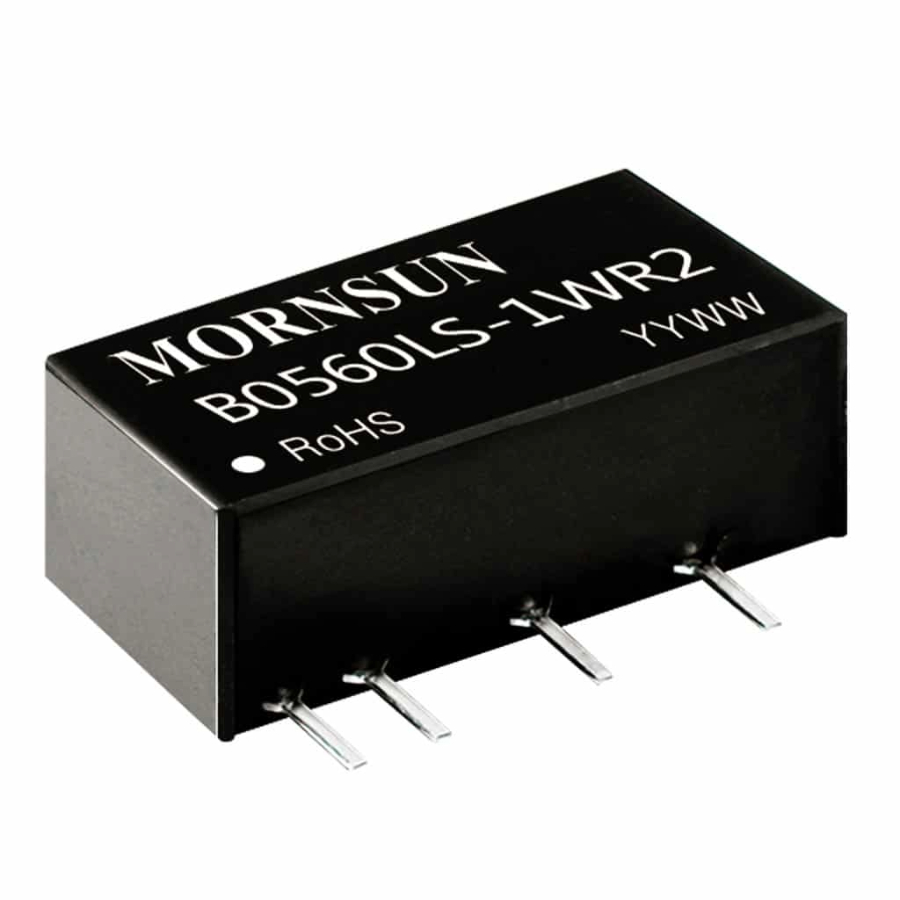1W DC/DC Converter – Shaping the Future of Energy Efficiency
There are many circuits in today’s electronic devices, each with different requirements. For each machine to function properly, you must provide a separate power supply to each circuit or somehow control the output voltage level of the power supply. Second, power conversion can be achieved, especially through DC-DC converters. A 1W DC/DC converter is a small yet indispensable electronic device designed to convert one direct current (DC) voltage level into another while providing a power output of 1 watt. These converters play a crucial role in various electronic applications, offering voltage regulation, isolation, and efficiency improvements. In this comprehensive exploration, we will delve into the key aspects of 1W DC/DC converters, including their working principles, applications, advantages, and challenges.
Working Principles
The fundamental purpose of a DC/DC converter is to transform one DC voltage level into another, allowing for efficient power transfer and regulation. The primary components of a typical 1W DC/DC converter include an input voltage source, a switching element (usually a transistor), an energy storage element (inductor or capacitor), and a control circuit.
Voltage Regulation: One of the primary functions of a DC/DC converter is voltage regulation. It ensures that the output voltage remains stable, regardless of variations in the input voltage or load conditions. This is critical in many applications where a consistent voltage level is required for proper device operation.
Efficiency: DC/DC converters are designed to be highly efficient, minimizing energy losses during the voltage conversion process. High efficiency is crucial in battery-powered devices and renewable energy systems, as it helps extend battery life and optimize power generation.
Isolation: Some DC/DC converters also provide electrical isolation between the input and output, enhancing safety and preventing ground loops in sensitive applications.
Applications
Portable Electronics: 1W DC/DC converters are commonly used in portable electronic devices like smartphones, tablets, and laptops to efficiently step down the battery voltage to the required levels for various internal components.
Industrial Control Systems: In industrial automation and control systems, these converters are used for voltage regulation, signal isolation, and powering sensors and transducers.
Telecommunications: They are utilized in telecom equipment for voltage conversion and isolation in power supplies, ensuring reliable operation of communication infrastructure.
Renewable Energy: DC/DC converters are integral to solar and wind energy systems, where they optimize power conversion and maintain grid compatibility.
Medical Devices: In medical equipment such as patient monitors and diagnostic devices, DC/DC converters ensure the precise voltage levels needed for accurate measurements and patient safety.
Automotive Electronics: Modern vehicles incorporate DC/DC converters to regulate power for various systems, from infotainment to engine control units, improving overall efficiency.
Advantages
Efficiency: DC/DC converters are highly efficient, reducing energy waste and extending the life of batteries in portable devices.
Voltage Regulation: They provide stable output voltages, critical for the proper functioning of electronic components.
Miniaturization: 1W DC/DC converters are available in compact sizes, making them suitable for space-constrained applications.
Isolation: Some converters offer electrical isolation, preventing issues related to ground loops and enhancing safety.
Versatility: These converters can step up or step down voltage levels, making them adaptable to a wide range of applications.
Future of DC-DC Converters
Opportunities for DC/DC converter module and IC manufacturers are greater than ever due to new applications, new electronics, advanced materials and equipment, and electrical standards.
Knowing that more business will occur in the future, electronic commerce can benefit from these developments.
Challenges
Heat Dissipation: High efficiency is desirable, but it can lead to heat generation, requiring proper thermal management.
Complexity: Advanced DC/DC converters may have complex control algorithms and additional features, necessitating careful design and testing.
Cost: Some specialized converters can be expensive, especially when high precision and reliability are required.
Electromagnetic Interference (EMI): High-frequency switching in DC/DC converters can generate EMI, which needs to be mitigated to avoid interference with other electronic systems.
Conclusion
In conclusion, 1W DC/DC converters are essential components in modern electronics, enabling efficient voltage conversion, regulation, and isolation in a wide range of applications. Their ability to maintain stable output voltages, improve efficiency, and provide isolation makes them indispensable in industries ranging from consumer electronics to renewable energy and industrial automation. As technology continues to advance, the development of even more efficient and compact DC/DC converters will play a pivotal role in shaping the future of electronic devices and power systems.
Source

